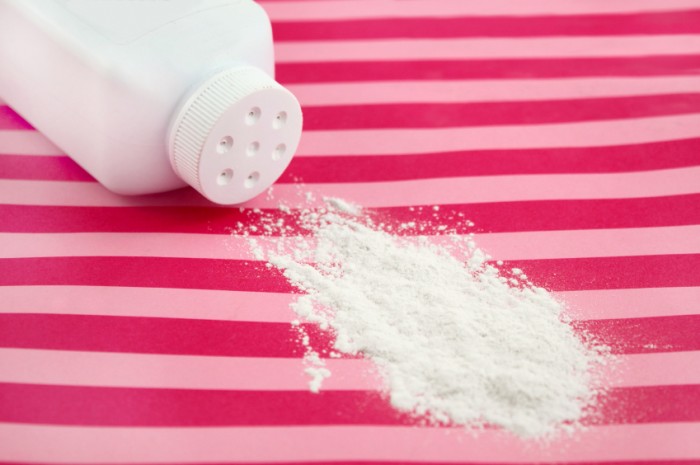Top Class Actions’s website and social media posts use affiliate links. If you make a purchase using such links, we may receive a commission, but it will not result in any additional charges to you. Please review our Affiliate Link Disclosure for more information.

The baby powder cancer study of some 2,000 women pooled the results of eight research papers. The study looked at women who used talcum powder for “intimate personal hygiene” in the genital area.
There was no link between the frequency and amount of talc used and the risk of cancer, according to the study results, which found that use ranged from daily to occasional.
A 2003 analysis of combined data from 16 studies also found a nexus between applying talcum powder to the genital area and an increased risk of ovarian cancer, according to The Guardian, which notes that only specific types of the female cancers are increased.
“An average woman’s lifetime risk of ovarian cancer is less than two percent so a 30 percent increase would only marginally raise this figure,” according to the newspaper. “The International Agency for Research on Cancer, part of the World Health Organization, classifies talcs as ‘possibly carcinogenic to humans’ based on studies of genital use.”
The studies reached their conclusions one of two ways: comparing cancer rates in women exposed to talc and women who weren’t or by testing on animals.
While talcum powder is helpful in reducing friction and absorbing moisture, the powder’s particles can migrate from the vagina, through the uterus and fallopian tubes, to the ovaries after being applied to the genital area on sanitary napkins, diaphragms or condoms.
At one time, Talc contained asbestos (naturally present in minerals such as magnesium and silicon), though it no longer does.
“It still has minute fibers that take years to dissolve,” according to the study.
The 2003 American Cancer Society study found that the average woman’s lifetime risk of ovarian cancer is about 1.4 percent, so even with a 30 percent increase, her lifetime risk would be about 1.8 percent.
A Harvard epidemiologist has estimated that talcum powder in the genital area leads to 45 percent — or some 10,000 — of the annual ovarian cancer diagnoses. Approximately 22,240 women in 2013 would be diagnosed with the disease and 14,030 of them would die of it that same year.
Another study has suggested genital talcum powder use may slightly increase the risk of endometrial (uterine) cancer in post-menopausal women.
Talc is known to be an ingredient in many cosmetic products as well as baby powder and adult body and facial powders, such as Johnson’s Baby Powder and Shower to Shower.
In 2013, a federal jury found that Johnson & Johnson talc based powders played a role in the 2006 ovarian cancer diagnosis of a woman who used the powders every day for 30 years. She filed a baby powder cancer lawsuit against the company for negligence and failure to warn consumers about the risk.
Jurors reached their decision after hearing from three different doctors who examined extracted cancerous tissues and concluded that talc particles caused the cancer.
The American Cancer Society suggests that anyone concerned about the link between ovarian cancer and talc avoid or limit their use of products that contain it. It also recommends cornstarch-based cosmetic products instead. It is also recommended that women avoid applying it to underwear or sanitary napkins.
Do YOU have a legal claim? Fill out the form on this page now for a free, immediate, and confidential case evaluation. The attorneys who work with Top Class Actions will contact you if you qualify to let you know if an individual lawsuit or class action lawsuit is best for you. [In general, baby powder cancer lawsuits are filed individually by each plaintiff and are not class actions.] Hurry — statutes of limitations may apply.
ATTORNEY ADVERTISING
Top Class Actions is a Proud Member of the American Bar Association
LEGAL INFORMATION IS NOT LEGAL ADVICE
Top Class Actions Legal Statement
©2008 – 2024 Top Class Actions® LLC
Various Trademarks held by their respective owners
This website is not intended for viewing or usage by European Union citizens.
Get Help – It’s Free
Join a Free Baby Powder Cancer Class Action Lawsuit Investigation
If you used Johnson’s Baby Powder, Shower to Shower, or another talcum powder product and were diagnosed with ovarian cancer, you may have a legal claim. Family members of loved ones who died of ovarian cancer can also join. Submit your information now for a free case evaluation.
An attorney will contact you if you qualify to discuss the details of your potential case at no charge to you.












